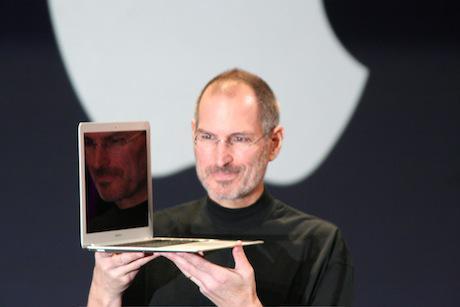Dear Apple,
This is a letter from a long-time MacBook Pro owner. I use your hardware and software to store, order and transmit the substance of my work, my art, friendships, romance and ever more of my life. As a professional, a consumer and a citizen, I try to take responsibility for the way my data is handled. That responsibility extends to the data of others that I handle, often more sensitive than my own.
Impressed by the specification, ergonomics and software-set, I am considering buying another, fresh, MacBook Pro. I am sure it will be slick, durable, smart and beautiful. I confess to being captivated by the OS X lifestyle with its graceful, productive dance. (But please don’t quote me without my permission.)
However, I need to be sure that it will be capable of keeping my secrets secret, and my data where I alone want it. Your promotional material soothes the conscience, and your company's visible interventions in public and diplomatic discourse contribute to the idea that Apple products protect. Doubtless your engineers tasked with upholding privacy are a talented crew with a well-motivated remit.
Yet some fundamental concerns remain as I consider whether to trust in your brand once again. Since I bought my last machine, a lot has come to light. We know more about how modern machines are used to extract the details of our existence. We also know that there are many unknowns of this variety. Awareness of the privacy problem and how we can deal with it has widened. It affects our lives more than ever before. As consumers, we must be ever more sophisticated and exacting in our demands.
Open source: our insurance against abuse
The code and hardware of Apple machines is closed, so invisible to any onlooker. Unlike with open source systems, the user and the global community with an interest in security are kept from the possibility of understanding their vessel.
Joining in the vigorous expansion of copyright protection mechanisms (like web browser DRM), Apple leans its considerable weight against the philosophy of openness in software. This makes it harder for communities and companies to inspect and trust their own systems. ‘Open source’ is synonymous with ‘auditable’; in this way, Apple works against transparency, moved by a commercial rationale.
Can you tell me why this shouldn't be seen as a comparative deficiency? Am I not better off running open code and open hardware, like the new Librem laptop?
Designers and manufacturers of products that impact on our data have a critical role in defining the standards we live with, and inviting the questions that we should ask. Besides setting that standard through design philosophies, I wish to support companies who wield their power to promote principles that defend the realities of transparency and citizen empowerment.
The gravitas of purchase
My decision to buy reflects a number of concerns, amongst which privacy is increasingly important.
I want to enjoy the grace and power of another MacBook but, as others have, I am looking more seriously than ever at options which optimise, technically and philosophically, for user privacy.
The matter is too important for you to remain silent. Your arguments will affect me and others like me. I hope you will put them forth.
In conscience,
Matthew Linares
















